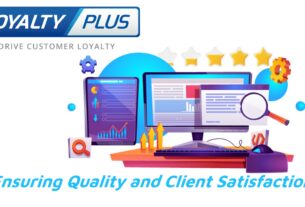The workplace of the future will be employee-driven, which means employers will offer staff much more than just the pay cheque. The post-COVID-19 worker demands recognition and access to resources that will help them develop their skills and nurture their development as people. It’s a trend that human capital management experts are aware of and continue to monitor.
“That’s because it has a direct and significant influence on how businesses run today,” says Nicol Myburgh, Head: CRS Technologies HCM Business Unit. “The pandemic forced a level of introspection by both employers and employees, and as a result, today more emphasis is placed on people development, on work-life balance, and recognition of the value that an employee has in an organisation.”
But that doesn’t mean financial reward is no longer relevant. “No, that’s not the case at all. The cost of living has increased and employees want a fair deal – hard work should be rewarded with fair pay. The basic premise in business still applies… if you work hard and are dedicated and committed, you should see a difference in your salary, if profits allow,” Myburgh adds.
CRS Technologies underlines the fact that business models have had to change, irrespective of in which industry or sector a business trades. These models need to align to the post-COVID-19 framework which is based on outcomes over output – the actual tangible benefits that a company derives from the efforts of a worker, not necessarily how many hours have been put in or how much time is spent on tasks and projects.
“If one thinks about it, the days of clock-watching and micro-management are over. The metrics upon which a person’s performance is measured have changed,” says Myburgh. A review of labour and recruitment websites shows that payment and well-being rank high on the list of employee priorities, along with aspects like job security. CRS Technologies has conducted its own research and, together with the experience gained from decades of working in human resource and payroll management, it has identified several important factors that employers want.
Sites Gallup.com, linezero.com and workramp.com detail how the employee value proposition (EVP) has emerged as a critical differentiator in today’s market. Linezero.com offers a clear definition of EVP: “The EVP represents the distinctive package of benefits and opportunities an organisation extends to its employees in recognition of their skills, capabilities and experience.”
Myburgh believes that while different countries that make up Africa will differ in terms of sought-after skills, market dynamics, strength of economy, unemployment rates and regulations, there is one common denominator that levels the playing field – today’s workers want security, wellbeing, recognition and fair pay for an honest day’s work.





